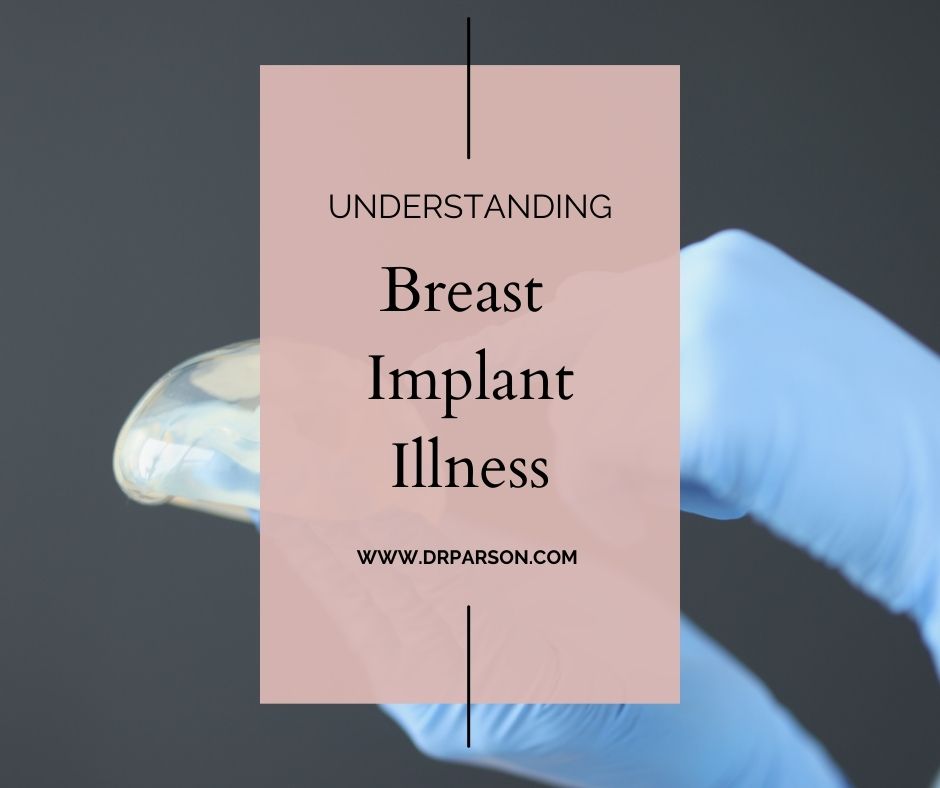
13 Dec Understanding Breast Implant Illness: Symptoms, Causes, and Solutions
Understanding Breast Implant Illness: Symptoms, Causes, and Solutions
In recent years, more awareness has been brought to a condition known as breast implant illness (BII). This term is used to describe a range of symptoms that some women experience after receiving breast implants. While BII is not officially recognized as a medical diagnosis, it has become an important topic of conversation for patients and surgeons alike. Understanding breast implant illness, its symptoms, and possible solutions is essential for those considering or living with breast implants.
What Is Breast Implant Illness?
Breast implant illness refers to a collection of physical and mental health symptoms that some individuals with breast implants report experiencing. These symptoms can vary widely and may arise shortly after surgery or years later. BII is associated with both silicone and saline breast implants and can occur regardless of whether the implant has a smooth or textured surface.
While ongoing research seeks to better understand BII, it is considered a type of autoimmune or inflammatory reaction that some people’s bodies may have to implants.
Common Symptoms of Breast Implant Illness
Symptoms of breast implant illness can be diverse, ranging from mild to severe. They often mimic those of other conditions, making diagnosis challenging. Commonly reported symptoms include:
- Chronic fatigue: Persistent tiredness that does not improve with rest.
- Joint and muscle pain: Aching or stiffness in different areas of the body.
- Cognitive issues: “Brain fog,” difficulty concentrating, or memory problems.
- Skin rashes and changes: Unexplained rashes or unusual skin reactions.
- Hair loss: Thinning hair or increased hair shedding.
- Anxiety and depression: Mood swings or heightened levels of anxiety and depression.
- Autoimmune-like symptoms: Conditions resembling autoimmune diseases, such as lupus or rheumatoid arthritis.
What Causes Breast Implant Illness?
The exact cause of breast implant illness is still unclear. However, experts believe that BII may be triggered by:
- Immune response: Some individuals may have an inflammatory or autoimmune response to the implants or the substances they contain.
- Silicone particles: Tiny particles that can potentially migrate outside the implant shell.
- Heavy metals and chemicals: Trace amounts of metals and chemicals used in the manufacturing process may cause reactions in susceptible individuals.
It’s important to note that while these theories are being investigated, they are not yet definitive. Breast implants are considered safe by organizations like the FDA, but reports of BII continue to prompt further research.
Diagnosing Breast Implant Illness
Diagnosing BII can be complex because its symptoms often overlap with those of other conditions. There is currently no specific test to confirm BII. Physicians usually conduct a thorough evaluation to rule out other potential causes of symptoms. For those experiencing persistent issues and suspecting a link to their implants, discussing concerns openly with a healthcare provider is essential.
Treatment and Solutions for Breast Implant Illness
If you believe you may be experiencing breast implant illness, several options are available:
- Medical Evaluation: Start by consulting with a medical professional who specializes in breast health and autoimmune conditions. Comprehensive blood tests and assessments can help determine if symptoms are related to an underlying autoimmune issue.
- Lifestyle Changes: Implementing a nutrient-dense diet, staying hydrated, reducing stress, and getting regular exercise can support overall health and potentially mitigate some symptoms.
- Explant Surgery: For many women, removing the implants (known as explant surgery) provides relief from symptoms. This surgery may involve removing both the implants and surrounding scar tissue (capsulectomy) to ensure that any potential sources of inflammation are eliminated.
- En bloc capsulectomy is a specific technique where the implant and the entire capsule of scar tissue are removed together. This method may be recommended for those concerned about silicone leakage or severe symptoms.
- Supportive Treatments: Post-explant, many individuals seek additional treatments such as detoxification protocols, nutritional support, and holistic therapies to aid in recovery and symptom improvement.
Living with Breast Implant Illness
Breast implant illness can be an emotionally and physically challenging experience. For those who choose to remove their implants, recovery can involve a combination of physical healing and emotional adjustment. Support groups and counseling can be valuable for processing this experience and finding a community of individuals who understand what you’re going through.
Raising Awareness and Continued Research
The conversation around breast implant illness continues to grow, leading to increased attention from the medical community and ongoing studies. Many plastic surgeons are now discussing the potential risks with their patients more openly, empowering individuals to make informed decisions regarding breast augmentation.
Conclusion
Breast implant illness is a real and impactful condition for some women, though it is not yet fully understood. If you are experiencing unexplained symptoms and suspect that your breast implants may be the cause, it’s important to seek medical advice and consider your options. At Dr. Shaun Parson Plastic Surgery, we are dedicated to patient safety, transparency, and comprehensive care. We encourage anyone with concerns about breast implant illness to reach out and discuss their questions with our team. To see explant photos you can view them here on our website.
If you’re considering explant surgery or want to learn more about breast implant illness, contact our office for a consultation. Our goal is to provide the information and support you need to make the best choices for your health and well-being.
National Library of medicine has an article here more in depth about BII.
